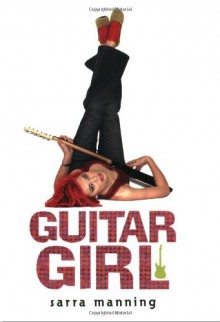
Reading John Scalzi is like going in expecting to read a nice little satire of science fiction, and then suddenly being slammed with the most outrageous concept ever but it’s very straight-faced and at the end you’re sitting there thinking “What the fuck did I just read? I know it’s good. But what the fuck.” (The Old Man’s War cycle is probably the most straight example of all of Scalzi’s work that I’ve read; I’ve yet to get to Fuzzy Nation or Agent to the Stars.)
This is a book that begins with a revenge tragedy that culminates into a thirty-page fart joke that will threaten the existence of Earth and it’s played completely and utterly straight. I don’t know why I was so shocked by the set-up of the premise because I’ve read Scalzi before. I should be expecting this. And it just gets progressively more fucked up as the plot snarls into a massive Gordian knot of “What the hell just happened?” to the point where even cutting it isn’t an option.
(I actually gave this to my sister years ago after I finished Old Man’s War and had picked this up. When I told her that I was reading this and I had no idea how this book started, she looked at me, and yelled at me for giving her the book in the first place.)
One of the things I really love about Scalzi’s alien creations is that he does come up with really ridiculous xenobiology and some of the most horrifying and disgusting alien functions and anatomy in the eyes of humanity (see the Kathungi fertility cycle), and yet it comes off as very sincere and matter of fact. Scalzi really makes his aliens feel more realistic and human by giving them very human traits and emotions. Especially once we get to the Nidu and the win-Getag clan’s rise to power, and they’re so devious in how to execute the entire plan and it’s done so well.
And it should be mentioned that the major twist of the book when Harry Creek finds the titular Android’s Dream does actually make some sense when things are explained. (Oh, that explanation was horrifying.) And the other thing that I like about Scalzi’s work is that he does put a lot of thought into the resolution and solutions to the problem and still manages to find ways to put up a roadblocks for the protagonists. Which is really hard to pull off and to pull off well.
If there’s anything that I didn’t love, I think that I wasn’t a huge fan of Harry and Robin. They’re good characters, and I enjoyed them, but they felt kind of bland? I’m not sure—I really don’t want to say that Scalzi’s written these character types before, but a lot about the language and the chemistry between Harry and Robin felt like “I’ve read this before.” [spoiler]It’s more prevalent with Brian Javna; I have seen Scalzi doing the very tech-savvy supporting character who has the key to everything. I thought it was fascinating how Javna managed to preserve himself and then having Harry to figure out a way to resurrect his best friend, but again, Brian’s dialogue and characterization did feel like a bit of retread.
[/spoiler] I really liked Archie’s character the most, specifically him being caught between this vast conspiracy and what he’s been ordered to do by the Church of the Evolved Lamb. (Btw, I love that the Church of the Evolved Lamb is a whole spoof of Scientology that ends up being a sincere religion that ends up being right. It’s kind of beautiful.) And I really liked how much thought Scalzi does put into all of his characters, even the minor ones.
That all said, it’s still a really good book. The twists and turns are pulled off really well, and even though the plot is incredibly dense and complicated, it’s still explained well to the reader. (Really, the only thing you’re going “What the fuck am I reading?” at is the sheer “NO WHAT THE FUCK DID HE JUST SAY? DEATH BY FARTS?” Amongst other things.) I really enjoyed it, and if you’ve read other Scalzi books and enjoyed them, you’d like this too.

 Log in with Facebook
Log in with Facebook 






